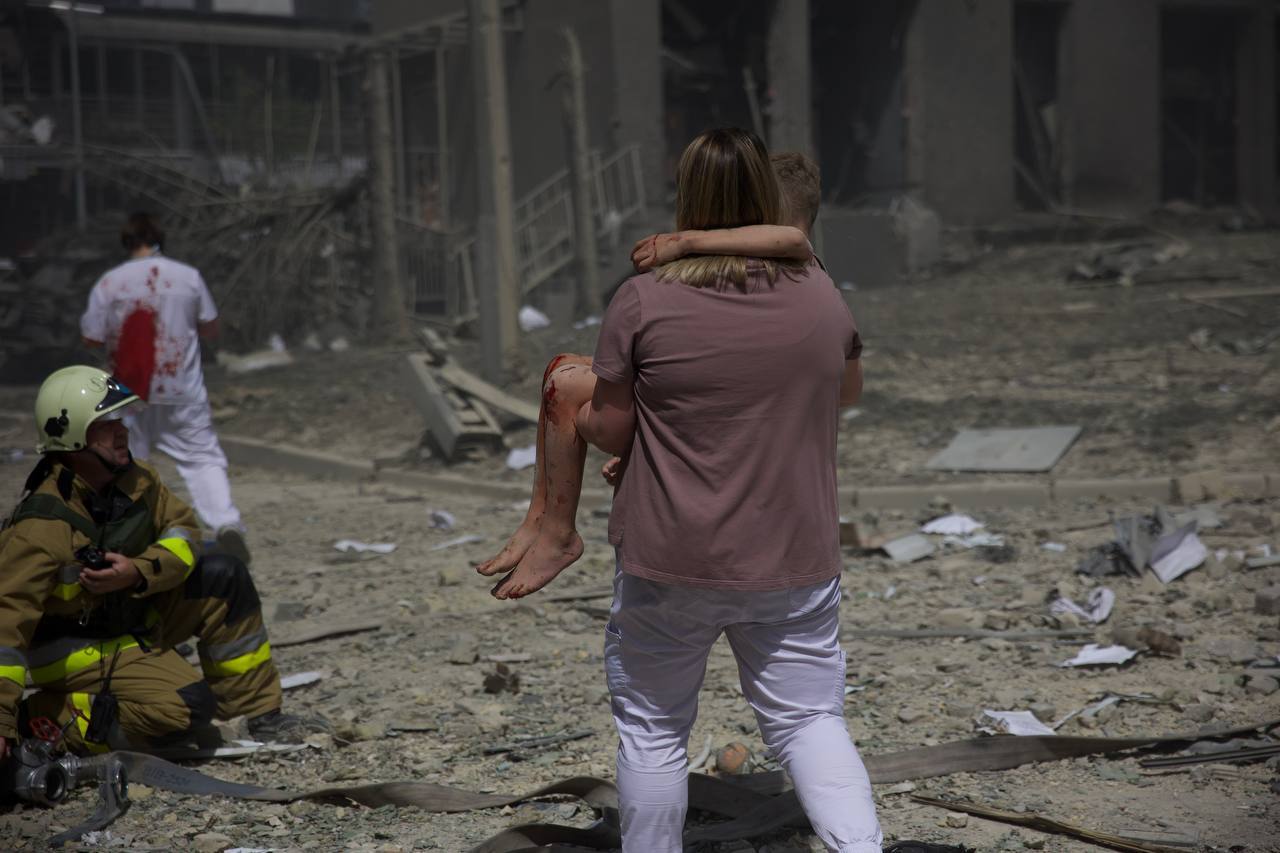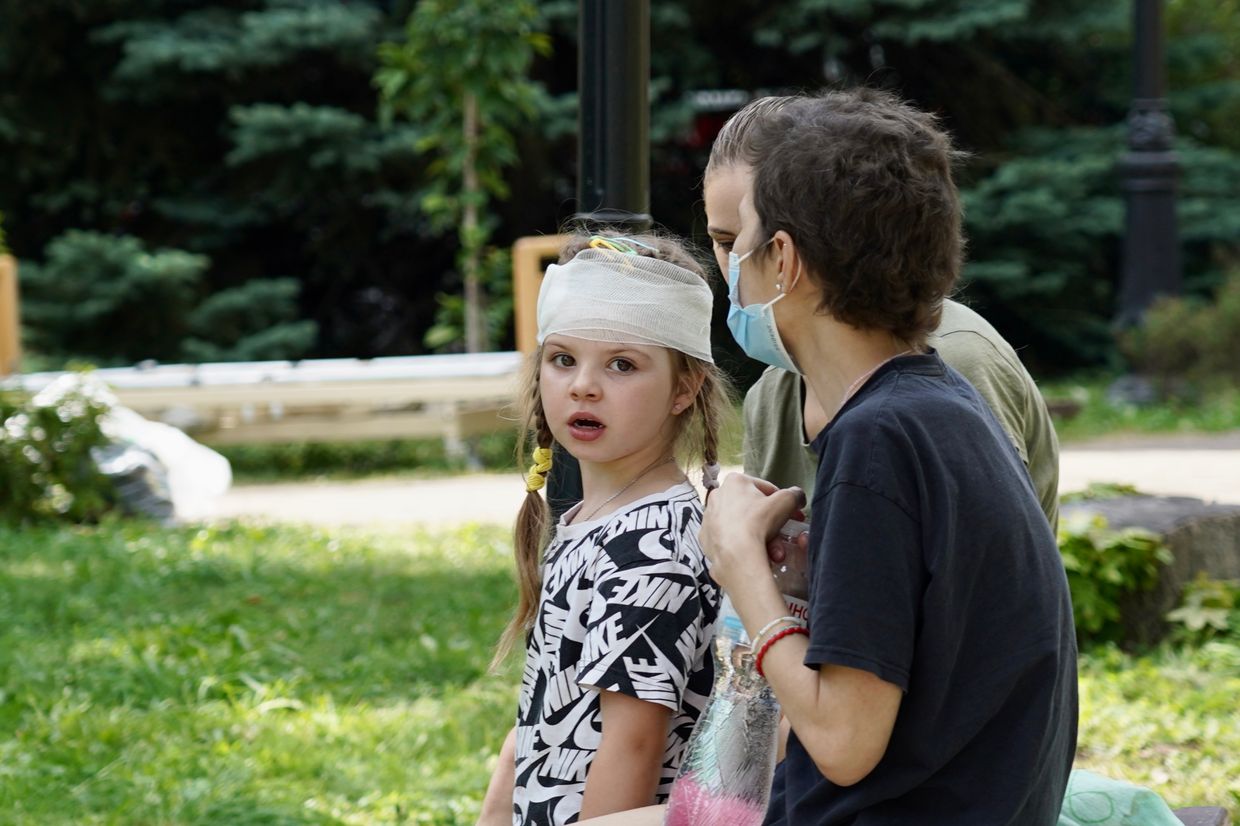Quiet Kyiv neighborhood hit in a mass Russian attack

A crane removes a concrete slab while clearing rubble at residential building partially destroyed by a Russian missile strike on July 8, 2024 in Kyiv, Ukraine. (Yan Dobronosov/Global Images Ukraine via Getty Images)
Editor's Note: Kyiv Mayor Vitali Klitschko said on July 9 that nine people were killed in the building in the Syrets neighborhood following a Russian missile strike a day prior.
On a Monday morning, Nataliia Fedorenko and her mother felt lucky to survive their daily routine: walking their dog in a normally sleepy northwestern residential neighborhood.
As they entered their five-story apartment building, they remember first hearing a whistling sound and then an explosion. Afterward, they realized that a part of a residential building across the street had collapsed. It was the aftermath of one of the most massive Russian missile strikes on Kyiv and other Ukrainian cities in recent months.
"I thought my house started to collapse on me," Fedorenko told the Kyiv Independent.
"At first, I thought that I needed to push my mom and dog outside, but outside, everything was crumbling. We were lucky – we only have shattered windows,” she added.
A portion of the apartment building across the street had completely collapsed into rubble. Rescue workers at the scene found signs of a person in the ruins, but it was not immediately clear if the person had survived and how many fatalities and injuries the strike had caused.
“We are hearing people’s voices from under the debris and are working to rescue them as soon as possible,” Kyiv Mayor Vitali Klitschko said upon visiting the scene Monday afternoon.
Sitting in a humanitarian relief hub nearby, was Nina Kolesnyk, 89, a resident of the fourth floor in a part of the building that did not collapse but was badly damaged in the attack.
"I have lived there since 1967. Now everything is burned," she said. "I breathed so much smoke.”
After hearing the explosion from her workplace, Nina's daughter Olha Logovska, who lives in the same building with her family, texted her husband asking him to take their son and her mother to the shelter. He responded via text: "Our apartment and the car are gone."

"My husband and son jumped out the window when the window grate was blown away by the explosion,” Logovska said.
After she rushed home to find her family scratched and shaken but alive at the humanitarian hub, she faced another challenge. As she was putting down their information in the list of people who lost their homes in the attack, Logovska found that her family may not be eligible for help instantly, as the paperwork for the apartment was not up to date.
"It's very bad. We have nowhere to sleep today," she said on her way to their destroyed home where she planned to check if any documents survived the hit.
Hours after the explosion, hundreds of volunteers in civilian clothes and gloves helped to clear the rubble with the rescuers. They cleared pieces of twisted metal, concrete, roof tiles, and wooden twigs around the destroyed part of the building.
Sometimes, the rescuers would shut down the machines and shout for everyone to stay silent. They tried to hear people under the rubble, but no screams were heard.
By early evening, the rescuers located some of the people under the rubble, a police officer on the scene said. There is no information on whether they were alive.
Oleksandra Skorohod, 26, who lives in another part of the city came to help clear the debris with other volunteers for the first time since the beginning of the full-scale war. She, like others, had earlier arrived to help victims at Okhmatdyt, Ukraine’s main children’s hospital, which was flooded with volunteers seeking to provide assistance any way they could.
"I used to think: ’Why am I needed if there are rescuers?’" she said. "But today, after the big attack in the morning, I decided to help," she added.











